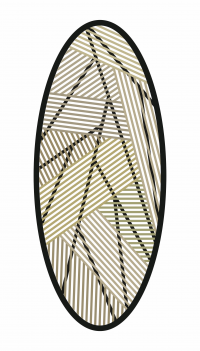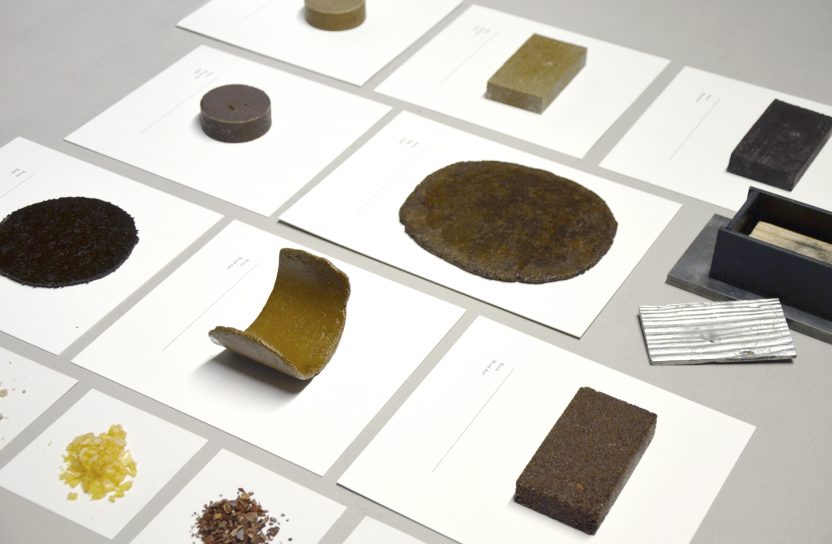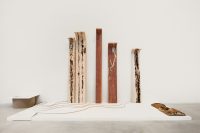
Belgian Design: Generous Nature
Is a more sustainable world a makeable world?
Sustainability was a hot topic at the 2019 Milan Design Week. A new generation of designers is reflecting on the impact of their designs on our planet. They have to make crucial decisions about the origin of materials, reusability, energy consumption and waste flows. Belgium’s three leading design institutions joined forces to showcase the work of these environmentally-aware Belgians. Flanders DC, MAD Brussels and Wallonie-Bruxelles Design Mode (WBDM) did this in Milan under the Belgium is Design label. Design Museum Gent is hosting this exhibition as of 17 May.
The exhibition Belgian Design: Generous Nature shows how today’s designers are bringing about a sea change in our production and consumption, by opting for sustainable systems that focus on more than just the product. Besides smart choices in terms of materials and production processes, they also reflect on the impact of their design choices on politics, the economy, our behaviour, and our social interaction. This includes design that is not trend-sensitive, with a long lifespan, as well as low-energy or modular products. The exhibition highlights how responsible design takes the consequences of industry and extraction/exploitation on the environment into account, while questioning unbridled consumerism. The three design institutions each developed a section in the exhibition with Belgian designers, in which the aspect of ‘sustainability’ is interpreted in different ways: on the social, economic and ecological level.

With Maakbaar, Flanders DC has chosen to focus on the design industry’s instrumental role in making our planet and the environment more sustainable. The project was developed by BOS+ in partnership with OVAM, AIDER Peru and Design Museum Gent. Maakbaar wants to raise awareness about the sustainable and responsible use of forests and their ecosystems. A group of 10 designers was inspired by nature and the forest to create an ecological and socially-engaged project. They performed research into sustainability as part of the design and production of their designs over a period of 1.5 years, with assistance from BOS+, the project partners and each other. The result? Recycled surfboards made from flax composites, a collection of vases made from naturally tanned leather and a mobile games car, which was inspired by fieldwork in refugee camps. Besides this, the project inspired 500 students to reflect on sustainability. Some examples of their work have been included in the exhibition.

MAD – Brussels Fashion and Design Platform went in search of designers and small businesses, who champion engaged and meaningful design, which can reach as many people as possible. The selected projects use sustainable materials that respect the forest ecosystem, including bark, sawdust, resin, moss, foliage, lichens, recycled wood or scrap wood.
Wallonie-Bruxelles Design Mode (WBDM) showcases the outcome of advanced research into the responsible use of wood and logging, in a partnership between Walloon companies and designers. They provide assistance for various projects, with an emphasis on technical production know-how and the use of innovative materials, together with WOOD.BE. The latter is a technology centre of the timber and furniture industry.
Design studio Benoît Deneufbourg went in search of a sustainable and ecological material for the scenography of this exhibition. They opted to use the Solid Textile Board panels of Really, a subsidiary of Danish company Kvadrat. These panels are made from end-of-life cotton. This textile waste is then upcycled into fibres and pressed into panels. The modular displays were dismounted in Milan and will be reused in Ghent for the exhibition.
Partners: AIDER Peru, BOS+, Flanders DC, MAD, OVAM, WBDM, WOOD.BE

Sandra Plasschaert
Cats Communication
Press & PR
+32 479 35 10 39
sandra@catscommunication.be
Simon Adriaensen
Design Museum Gent
Communication
+32 9 323 64 88
simon.adriaensen@stad.gent